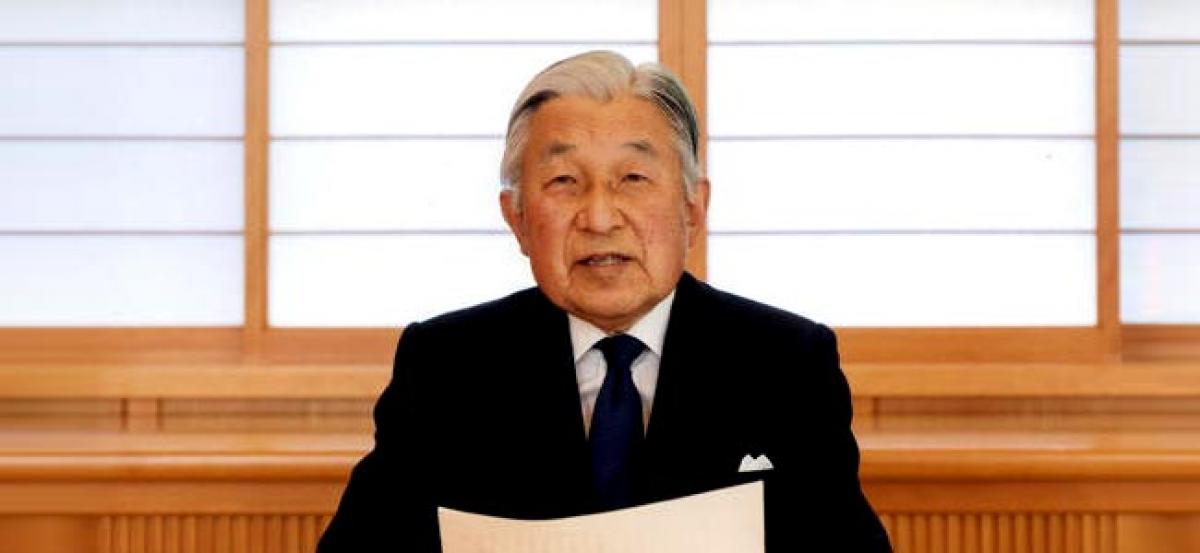Live
- Cyberabad Police Arrest 12 Transgender Individuals for Public Nuisance in Nanakramguda
- DC inspects Kaloji Cultural Complex
- PM Modi Arrives in Brazil for G20 Summit After Successful Visit to Nigeria
- Ankura Hospital holds 5K Walk
- Ramamurthy Naidu laid to rest with State honours
- Delhi Faces Severe Smog Crisis as Air Quality Hits 'Severe-Plus' Levels
- 8 minors rescued in anti human trafficking operation at Tirupati station
- Our Cricketers: From Paupers to Princelings
- CM to inaugurate Kaloji Kalakshetram tomorrow
- CM urges Orind Singapore to set up unit in Odisha
Just In

An expert panel set up by the Japanese government to deal with Emperor Akihito\'s abdication is set to deliberate its options on Monday as the country\'s Constitution lacks a provision for renouncing the throne.
Tokyo: An expert panel set up by the Japanese government to deal with Emperor Akihito's abdication is set to deliberate its options on Monday as the country's Constitution lacks a provision for renouncing the throne.
The special panel was formed in September after Emperor Akihito, 82, publicly expressed his desire to abdicate in favour of his son Naruhito, due to his advanced age and failing health, EFE news reported.
The panel's recommendations could pave the way to modifying the role of the Imperial Household, which has been subject to a strict set of rules unchanged since 1947.
The government wants the panel to submit at the earliest convenience a range of proposals enabling it to enact special legislation without having to amend the Constitution - a process too long and complicated - in order to comply with the emperor's wishes.
The group includes Junko Obata, professor at the law school of Sophia University, Midori Miyazaki, professor at Chiba University of Commerce, and Takashi Imai, chairman of Japan's largest business federation Keidanren.
The panel will be aided by experts in law as well as those from the royal household.
Although the 1947 law only allows posthumous abdication, nearly half of the country's 125 emperors who have occupied the Chrysanthemum Throne in the past have stepped down while alive.
Prime Minister Shinzo Abe's administration is planning to introduce special legislation - applicable only to Akihito's case - before Parliament in early 2017, that will pave the way for his abdication, a move that is supported by Japanese citizens, according to surveys.
Akihito's announcement is also being viewed as an opportunity to reopen the debate on amending the succession law to allow women to ascend to the throne, in a country that, despite being one of the most developed, has one of the worst levels of gender inequality.
Emperor Akihito's health has taken a turn for the worse in recent years, after he underwent heart bypass surgery in 2012.
He was previously diagnosed with prostate cancer in 2003, and developed osteoporosis as a side effect of the prescribed hormonal therapy.

© 2024 Hyderabad Media House Limited/The Hans India. All rights reserved. Powered by hocalwire.com







